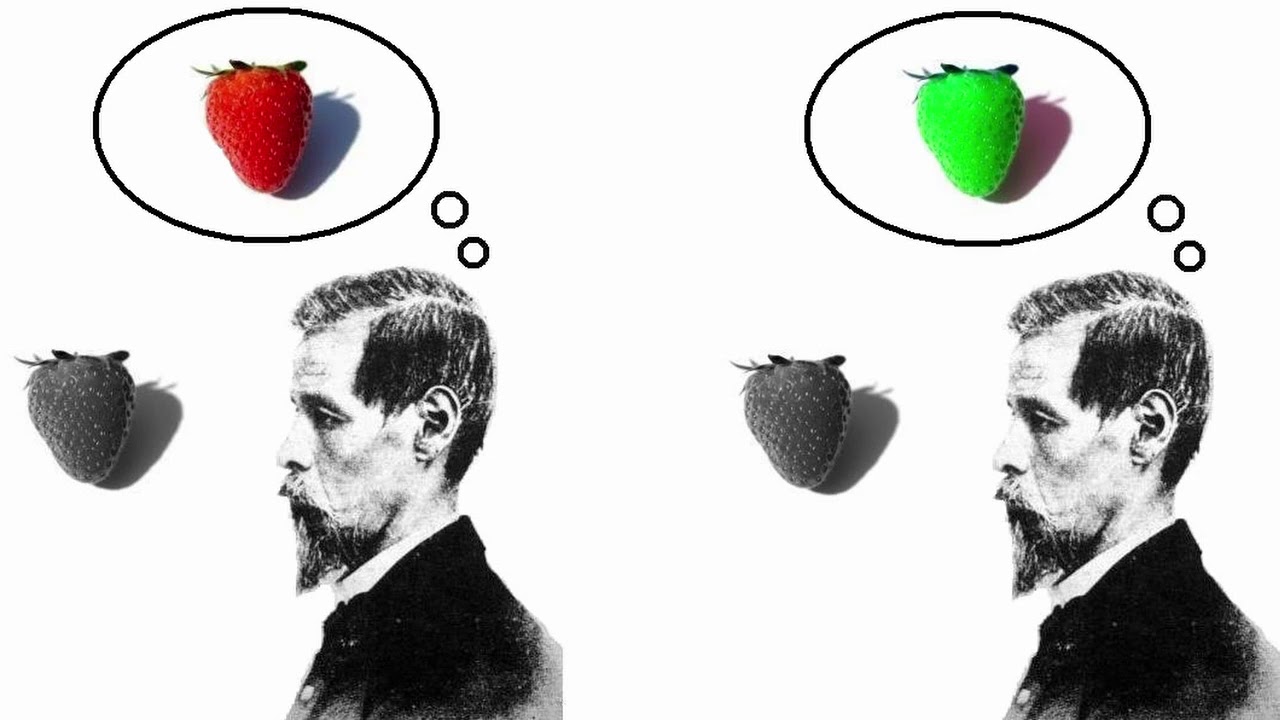Philosophy Overdose
Contemporary arguments for panpsychism rest on a sea of assumptions. Many of these are shared by both proponents and opponents of panpsychism who are convinced that mental properties, or at any rate conscious mental properties, differ dramatically from physical properties, that, as Descartes put it, the mental–physical distinction is a real distinction and not merely a distinction in conception. Professor John Heil discusses some of these background assumptions, suggests that they are optional, and offers replacements meant to open up a way of understanding how conscious qualities could turn out to be part of the natural world without recourse to panpsychism.
This talk was given in 2015 at Durham University, as part of the Institute of Advanced Study’s Fellow’s Seminar on emergence.
Source




The mental vs. physical dichotomy is muddled and seems less useful than the distinction between phenomena (objects and/or properties that depend on conscious experience for their existence) vs. noumena (objects and/or properties that exist independent of conscious experience). It is the former to which one has direct access and can be known to exist, whereas the latter is a merely theoretical explanation of the former. But the theoretical notion of the existence of noumena creates many more problems than it solves, and moreover, the existence of phenomena itself doesn’t have to be a problem to be solved; its existence is simply a brute fact. Noumena is neither helpful nor necessary.
The problem with the contemporary debate around consciousness, as outlined in the lecture, is that most if not all factions seem to begin with the assumption that noumena exists. From there some proceed to attempt to explain how phenomena can coexist with noumena, while others attempt to eliminate phenomena altogether. (I’m really not sure what it could mean to call consciousness “an illusion,” as an illusion by definition has no existence outside of consciousness.) Even the panpsychists seem merely to assert consciousness as one fundamental property coequal to so-called fundamental “physical” properties. Again, this fails to recognize that all properties, even those supposed to be physical, cannot be accessed or known to exist except AS properties of conscious experience, i.e., phenomena. One cannot step outside of consciousness to find the least bit of evidence of objects or properties existing independent of conscious experience.
Aspect dualism (or pluralism), as offered by Spinoza as well as the lecturer in this podcast, makes a similar mistake to its competitors. According to this theory, physical and mental objects or properties are not really distinct, but are merely different “aspects” of the same object or property. But what is meant by aspect in this context? My understanding of this term is that an aspect is “a way of looking at something,” “a way of perceiving or conceiving something,” “the way something appears from one perspective or another.” If one thing has more than one aspect, then that means there is more than one way of looking at it, perceiving it, or conceiving of it. As the terms are fleshed out, the failure of this theory should become obvious. ASPECTS ARE PHENOMENAL. Various ways of perceiving or conceiving of things are all still perceptions and conceptions. They are all dependent on consciousness for their existence. Without consciousness, there are no “ways of looking at things”; without perspectives, there are no aspects.
Monkey riding a tiger. A delusion. A delusion that has utility.
Panpsychism just seems like a totally unnecessary non-explanation. We're not even close to a complete understanding of the physicality of the brain. It seems premature and kinda presumptuous to say that no physical explanation could possibly explain consciousness. If that is so certain to you that you posit panpsychism then the problem lies in your conception of consciousness. You're superimposing inherently confused/contradictory ideas onto your perception of consciousness.
A full understanding of the neuroscience will illuminate many aspects of consciousness but I think there will still be mysteries after a complete understanding of the neuroscience, but it will be a product of a fundamental inability to ascertain one universal interpretation of the data. In order to translate the dry data about sets of neuronal tissue interacting with each other, into something that feels like a greater understanding of ourselves it'd have to be put into the concepts and categories which we use to construct our perception (including of our selves). And that's where a story of simple matter in motion turns into a story about subjects with desires/drives. This story is fundamentally not amenable to understanding through a formal system like that of physics because it's composed of capacities for self-representation. Think of Russell's paradox, or MC Escher's "Hands drawing hands". Which is the real hand? How did the hand start drawing before its drawing of a hand finished drawing the "original" hand? These are unanswerable and confused questions. Consciousness has that feature. That's why it seems like the scientific explanation leaves something out. It does in the sense that knowing all the neuroscience won't tell you how you should act. And that's a fundamental element of subjectivity. There is no perception of self or desires without the positing of some normative element.
Does this mean that we only exist in an illusion? Only if you make the mistake of assuming that there is some thing-in-itself. Or a self-in-itself. Nothing ultimately has an independent essence or nature. There are illusions in the sense that better attention and inquiry and dialectics can dissolve them and you can act with better clarity towards your ends, but you still decide the ends. And that decision will necessarily be a product of particular contingent circumstances because the self that decided the ends was a product of particular contingencies. You can see that things you thought about the world were really just superimpositions by your mind, but it'd be a mistake to assume that there is a way the world seems totally free from a particular being's superimpositions. The seeming IS the being, in a sense. There's an interesting homology with panpsychism here. It's appearance all the way down, but since there is nothing below that, that makes the appearances really just a particular perspective on the truth. Since the concept of appearance was only posited here as an opposition to the Truth.
I think part of the problem emerges from essentialism of the Self as well as a conflation of truth as conceived by science and truth as it is perceived by our minds. The scientific image is fundamentally an imperceptible one. Not just because the fundamental constituents are totally un-intuitive (eg curved spacetime and the uncertainty principle and mass-energy equivalence and quantum entanglement) but because it's a mode of inquiry that brackets the question of how a particular person should act, with that aspect left out it'd be foolish to take it as the ultimate Truth. It's a useful construct of discovery for truths of prediction.
TL;DR: Philosophers of mind couched in the modern American zeitgeist plagued by scientism and positivism and Kantianism produce a lot of bad questions.
Peter Lombard in the Catholic theology meaning the real distinction between substance and form, which real and unique God doesn't brought outside from the particles, tensions between Holy Spirit, Godfather and Jesus himself in the Holy Trinity, or extrusion of meaningless substancies whose never accompanied in the One, and Unique Matter of God, but only rejoices these substances in the human being, by One and Creational Spirit, in three of possibilities of functionally meaning of God Creator, God Teacher, God Redeemer etc. and real and self-being matter of eidolon (who's Molinists and Nominalists rejects) in three of beings equalized and rejoiced in mental and physical matter together.
What is mean for the sectarianist arguments about the middlephysicism, or paradoxis of amorphical metaphysics like middleworlds, unknown conceptions etc.?
Is the sound that comes out of a radio because its an emergent property of radios or is it because its ultimate particles have sound making properties? Hmm….. It seems like we have a false dialectic fallacy here. Also if you destroy the radio the sound making property gets broken but does that mean the sound was an intrinsic part of the radio?
Consciousness is a computational geometry embodied as waves of potential whose key feature is seeking value.
Panpsychism (as described here) is easy to ground, actually. You just need good, old fashioned teleology. And teleology is required by a good, scientific view of the universe (even if physicists fail to understand that). Of every effect has a final cause all the way down, then every effect has "aboutness" all the way down.
Implication, by the way, don't be Cartesian. It's so . . . Newtonian. :-p
Thanks for this!
One thing I never got about panpsychism is this: Let's suppose it's true. Electrons, Quarks, Protons etc. have some primitive kind of consciousness. Good. Now, why on earth do cars not show any sign of consciousness while eg. cats do? Both are rather complex arrangements of elementary particles that seem to play out very differently with respect to consciousness. Which is to say that you are still stuck with the same question, namely how arrangements of elementary particles contribute to the phenomenon of consciousness.* No? (I know that the lecture had another point but still. This is always on my head when I hear about panpsychism.)
*Actually, you're stuck with an even harder question. Yes, you can start with simple consciousness in the elementary particles but you have to still completely invent a theory of how the elementary particle-consciessnesses combine into larger forms of consciousness as found in cats and humans (but not cars). Given that we can't even answer the question where or what that simple consciousness or "subjectivity" of elementary particles is and how to prove it's existence, I find that quite a weird route.
Philosophy PhD: "here's my humble lecture, I will read it to you."
Random idiot on the internet: "bullshit, highfalutin verbiage on phenomenology even a 5-yr old can understand. Effin philosophers."
I was just thinking about this
ta-motto
Hmmmmmm strikes me as a lot of highfalutin verbiage to describe phenomenology that any 5-year-old could express in much simpler terms without all the circular gobbledygook. Ever learning and never able to come into a knowledge of the truth. Effing philosophers